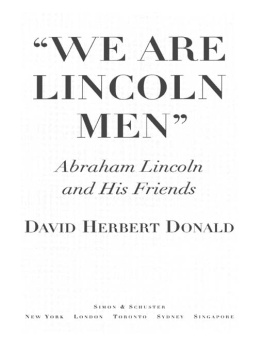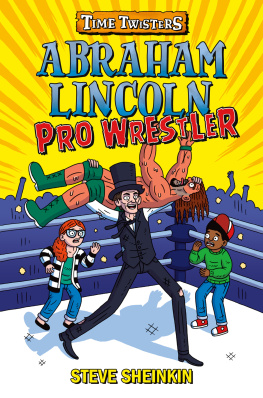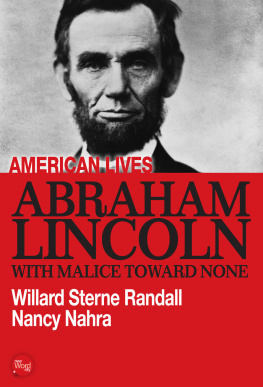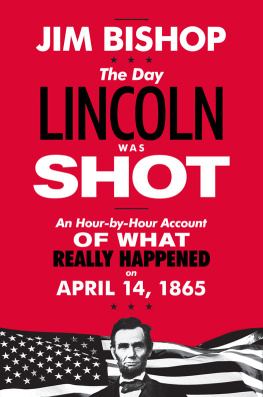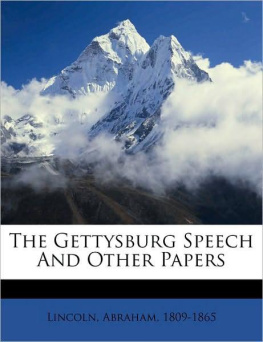Lincoln mediated
Lincoln mediated
The President and the Press through Nineteenth-Century Media
Gregory A. Borchard
David W. Bulla
With a foreword by David B. Sachsman
First published 2015 by Transaction Publishers
Published 2017 by Routledge
2 Park Square, Milton Park, Abingdon, Oxon OX14 4RN
711 Third Avenue, New York, NY 10017, USA
Routledge is an imprint of the Taylor & Francis Group, an informa business
All rights reserved. No part of this book may be reprinted or reproduced or utilised in any form or by any electronic, mechanical, or other means, now known or hereafter invented, including photocopying and recording, or in any information storage or retrieval system, without permission in writing from the publishers.
Notice:
Product or corporate names may be trademarks or registered trademarks, and are used only for identification and explanation without intent to infringe.
Library of Congress Catalog Number: 2014030056
Library of Congress Cataloging-in-Publication Data
Borchard, Gregory A.
Lincoln mediated : the president and the press through nineteenth-century media / Gregory A. Borchard, David W. Bulla ; with a foreword by David B. Sachsman.
pages cm
Includes bibliographical references and index.
ISBN 978-1-4128-5570-9
1. Lincoln, Abraham, 1809-1865Relations with journalists. 2. Press and politicsUnited StatesHistory19th century. 3. Journalism United StatesHistory19th century. 4. PresidentsPress coverage United States. I. Bulla, David W., 1959- II. Title.
E457.2B683 2015
973.7'1dc23
2014030056
ISBN 13: 978-1-4128-5570-9 (hbk)
We dedicate this book to three extraordinary individuals who each have contributed in spirit to its content: Hazel Dicken- Garcia and David Sachsman, who have inspired an entire generation of nineteenth-century press historians; and Bertram Wyatt-Brown (19322012), a scholar and a gentleman.
Contents
List of Images and Illustrations
(Library of Congress)
Book Cover. Abraham Lincoln, U.S. President. Seated portrait, holding glasses and newspaper, August 9, 1863, Alexander Gardner, photographer, Washington, DC, 1863.
Chapter 3, Abraham Lincoln, Congressman-elect from Illinois, Nicholas H. Shepherd, photographer, Springfield, Illinois, 1846 or 1847.
Chapter 3, Abraham Lincoln, candidate for U.S. president, three-quarter-length portrait, before delivering his Cooper Union address in New York City, Mathew B. Brady, photographer, February 27, 1860. 32
Chapter 3, Hon. Abraham Lincoln, born in Kentucky, February 12, 1809, Harpers Weekly, 4 (November 10, 1860): 705. 33
Chapter 3, Abraham Lincoln, head-and-shoulders portrait, facing right, Mathew B. Brady, photographer, Washington, DC, January 8, 1864. 35
Chapter 3, An incident of Gettysburgthe last thought of a dying father, Frank Leslies Illustrated Newspaper (January 2, 1864): 236. 36
Chapter 3, Petersburg, Virginia. Dead Confederate soldier with gun, attributed to Mathew B. Brady, April 3, 1865. 36
Chapter 3, Abraham Lincoln, head-and-shoulders portrait, traditionally called last photograph of Lincoln from life, Alexander Gardner, photographer, February 5, 1865. 40
Chapter 3, The assassination of President Lincoln; at Fords Theatre, Washington, DC, April 14, 1865, Currier and Ives lithograph, 1865. 42
Chapter 3, The assassins end. Final disposition of the body of John Wilkes Booth, Frank Leslies Illustrated Newspaper, 20, 503 (May 20, 1865): 129. 45
Chapter 3, Dedication ceremonies at the Soldiers National Cemetery, Gettysburg, Pennsylvania, Alexander Gardner, photographer, November 19, 1863. 47
Chapter 8, The latest from America, or, the New York Eye-Duster, to be taken every day, Punch (UK) 43 (July 26, 1862): 35. 159
Chapter 8, Britannia sympathises with Columbia, Punch (UK), May 6, 1865. 163
Conclusion, Front page, the New York Herald (genuine), April 15, 1865. 172
Conclusion, Front page, the New York Herald (inauthentic), April 15, 1865.
We think we know Abraham Lincoln. He is a very clear image in our minds. We have seen him many times on television and in the movies. He is wise, humble, tall but stooped over, frightfully thin, soft-spoken, even hesitant, and when he speaks he speaks slowly and very simply. He is old. He wears a beard to hide his common features, and he is always dressed in black, which makes sense because he spends night and day grieving for the dead on both sides of a horrible, tragic conflict that threatens to destroy the nation and disgrace the very concept of democracy.
If he had livedif only he had livedhe would have reunited the nation in peace and harmony. There would have been no recriminations on either side, no need for Reconstruction, no century-long separation between North and South.
He was depressed. He used humor to hide his depression. He had an unhappy marriage, and he knew it would be unhappy even before the wedding ceremony. When he was younger, he was clean-shaven, tall and straight-shouldered, and very strong. When he took part in the great debates, when he ran for the presidency, he was this younger man. As soon as he was elected, he began to age and age quickly, like so many other presidents.
This is a parta very small partof the image of Abraham Lincoln that I have in my head. I also can see Mary Lincoln, bitter and angry, doomed from the start, and happy, little Willie Lincoln, who was only eleven when he took sick and died in 1862, leaving behind parents who never recovered from their grief.
As someone who has lived in the South for more than twenty years, I wonder if there is anything Lincoln could have done to forestall the bloody carnage. Did he have to run for office? Did he have to call up the troops after Fort Sumter? Is there anything he could have done to keep Virginia in the Union? But I also see Lincoln as our greatest president, as the man who saved the Union and in so doing saved the ideals of liberty, freedom, and democracy in America and around the world. Democracy was not a common practice in 1860, and when the American democracy resulted in bloody civil war, many people in other nations questioned the practicality of such a fractious form of government.
These are the imagesright or wrongthat I have in my head. Some may be based on history, but most come from the media, from the stories that have been passed on by fiction, film, and the electronic media, the stories that form the pictures in our heads of Lincoln and his time, the memory and myths that live with us today.
Gregory A. Borchard and David W. Bulla in Lincoln Mediated: The President and the Press through Nineteenth-Century Media show us that in 1860, as well, the images of Lincoln in the heads of Americans came from the media, the newspapers that explained what was happening around them. As the authors explain, The most important function of the Civil War press was that of exposition. It told the story of the wars main plotthat is, which side was winningby emphasizing the results of battles. Likewise, the authors tell the story of the Civil War in this book.


